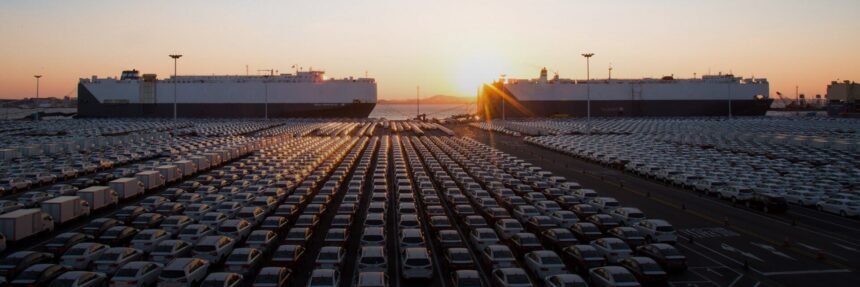The automotive industry has been hit hard by the US government’s decision to increase import tariffs on new vehicles and components to 25%. This move has forced global automakers, including US manufacturers GM and Ford, to rethink their business strategies and adapt to the changing landscape of the world’s second-largest auto market. With uncertainties looming and market shares dwindling, automakers are facing tough decisions and revising their earnings forecasts for the coming years.
The sudden introduction of these tariffs has disrupted the industry’s long-term planning and created a sense of instability in a sector that relies heavily on stable government policies. Automakers are now scrambling to bring forward investment plans, implement short-term fixes, and navigate the ever-changing trade policies of the current administration.
President Donald Trump’s unpredictable approach to policy-making has added to the industry’s woes, leading to further uncertainty about future trade policies. The decision to end EV incentive policies has also had a significant impact, prompting manufacturers to rethink their investment in battery production projects in the US.
The US has long been dependent on imports to meet its domestic vehicle demand, with Mexico, Japan, South Korea, and the EU being major exporters to the country. This heavy reliance on imports has put the US at a disadvantage, leading to a shift in production strategies and supply chains.
Major automakers like Nissan, GM, Ford, Honda, and Toyota are now reevaluating their production plans and looking to increase capacity in the US to reduce their dependence on imports. Investments are being made to shift production from countries like Mexico, Japan, and Canada to the US, with a focus on maintaining positive operating margins despite the tariff hikes.
Hyundai Motor Group, BMW, Mercedes-Benz, and Volkswagen are among the companies investing in US operations to expand production capacity and introduce new models. These investments are aimed at supporting the government’s tariff discussions and ensuring a more sustainable production model in the face of changing trade policies.
Overall, the automotive industry is facing a period of transition and adaptation as it navigates the challenges posed by higher import tariffs and uncertain trade policies. With investments being made to increase domestic production and reduce reliance on imports, automakers are working towards securing their positions in the US market and mitigating the impact of the new tariffs on their bottom line.







